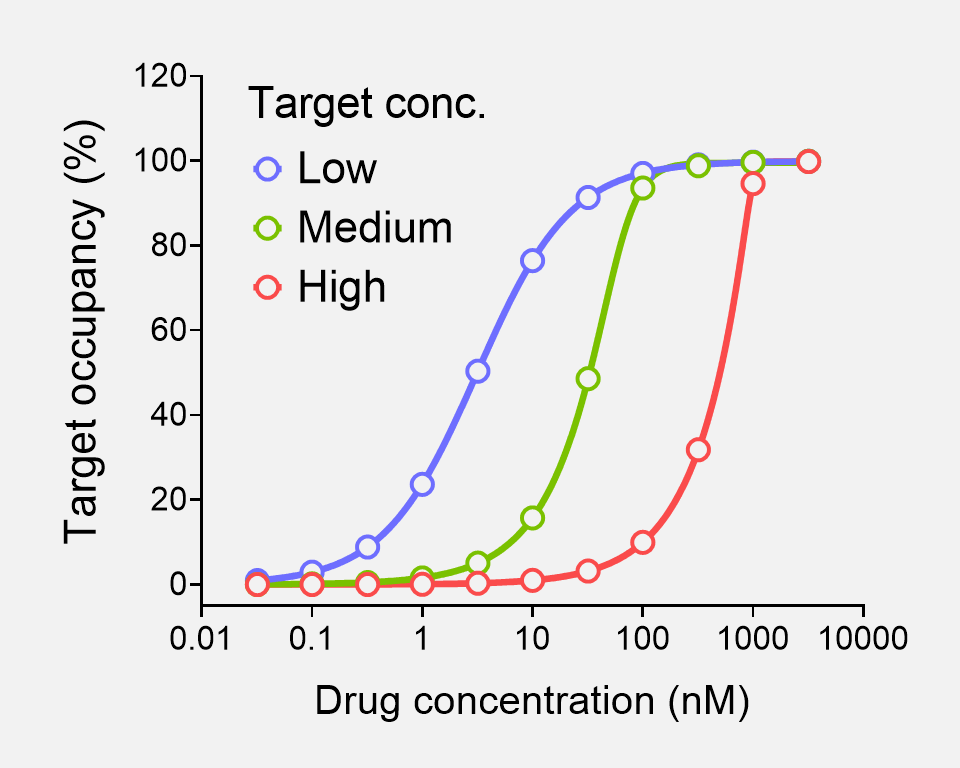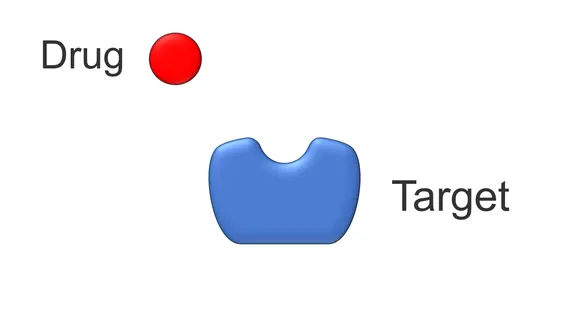Assay Artifacts
Pharmacology data analysis for quantifying drug potency (Kd, EC50, Ki etc) was developed a century ago. This analysis assumes the target density is low and the assay is at equilibrium. These assumptions are often violated by new technology, e.g. in DEL and mass spec selections. See below for explainers and simulators to help you understand and manage this issue.

Pharmacology data analysis for quantifying drug potency (Kd, EC50, Ki etc) was developed a century ago.
This analysis assumes the target density is low and the assay is at equilibrium.
These assumptions are often violated by new technology, e.g. in DEL and mass spec selections. We made a video and published a paper explaining the risks and how to mitigate them.
We also developed easy-to-use simulators to explore target density and equilibration artifacts in data analysis – see here.

Related
Resources
Assay artifact simulators
Simulate how target concentration and incubation time affect your assays, using Excel
Youtube Workshop
The Problems of Applying Classical Pharmacology to Modern Drug Discovery
Open Access Research
The Problems of Applying Classical Pharmacology Analysis to Modern In Vitro Drug Discovery Assays: Slow Binding Kinetics and High Target Concentration

Why Choose Pharmechanics?
Pharmechanics was founded by Dr Sam Hoare in 2017, with the goal of helping pharmacologists analyze, interpret and apply their data to accelerate drug discovery and basic research on drug targets. See testimonials here to see how I can support your science.
Sam is a globally-recognized expert on industrial, applied and theoretical pharmacology. As Lead Pharmacologist at Neurocrine Biosciences, his leadership, experience and insights were instrumental in the pharmacological optimization of three novel FDA-approved therapeutics, and several more compounds in clinical development.